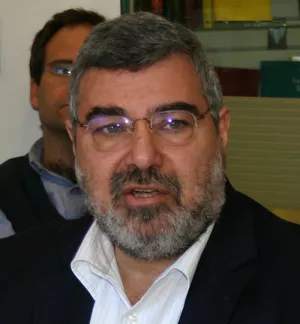BOSTON -- I have been going back and forth between the United States and Arab countries for my entire life, and every time I visit the United States I am shocked by the mainstream public sphere’s distorted and incomplete view of what is taking place in our region. This is happening again now, as the American media and public sphere in general write off most of the Arab world as a lost cause, having shed their initial interest and even some awe and respect for millions of ordinary Arab men and women (most of them Muslims) who fought for freedom, dignity and perhaps even democracy.
In the past week that I have been in New York, Philadelphia and Boston, the only mentions I’ve heard of the Arab uprisings (the “Arab Spring,” as it is commonly called here) have almost always been in the negative, and in the past, with special concerns voiced about the rise of Al-Qaeda-linked Islamists in Syria. Iraq, with its daily killings of 50 or 100 people, is hardly mentioned here. The point of such comments is that Arabs tried earnestly to remove dictators and establish democratic systems, but they failed, leaving the region in a state of deep turmoil, uncertainty and danger.
This superficial, incomplete and largely unfair assessment of what is actually happening in different Arab countries is contrasted by those pockets of sobriety and a more nuanced understanding that some hope actually exists amidst an Arab landscape of political turbulence and violence. This is especially true for the two countries -- Tunisia and Egypt -- where the Arab uprisings began, and where citizens continue doggedly to grapple with the complexities of transforming autocracies into democracies in a relatively short period of time. Syria, Bahrain, Libya and Yemen, on the other hand, remain mired in some degree of violence, turbulence or stalemate that will need years to be resolved.
It seems to me unfair and inaccurate to write off the possibility that some Arab countries can successfully achieve a democratic transition, especially given the short period of time since the uprisings began. I suspect the real problem is in the inability of most Americans to acknowledge those ongoing dynamics and real achievements that have been recorded, especially in Tunisia, rather than the actual inability of Arabs to democratize. The continuing advances in Tunisia are fascinating and impressive, in the context of a country that has enjoyed just 32 months of relative freedom to shape its destiny, following 54 years of non-stop one-party rule.
The most significant single aspect of events in Tunisia is the capacity of all major political actors, including the Islamist Ennahda Party that leads the ruling coalition, to dialogue, negotiate and compromise when necessary in order to maintain the transition towards a pluralistic democracy that allows all ideological groups to compete for power. This week Ennahda and a handful of smaller opposition parties agreed to launch a new national political dialogue this week to resolve a months-old political crisis. This agreement was spurred by the combined pressure and mediation of the leading trade union, the UGTT.
The dialogue participants will comprise all the parties represented in the National Constituent Assembly, which is responsible for drafting the new constitution and leading the way to parliamentary elections. The dialogue roadmap was drafted by the UGTT, the employers' organization UTICA, the Tunisian League for Human Rights, and the Tunisian bar association – which affirms the critical role that independent civil society groups can play in such historic transitions.
Egypt, in contrast, has suffered relatively more political violence, armed forces intervention and Islamist/non-Islamist polarization, largely because no credible indigenous group has been able to mediate between the two main organized forces in the country -- the Muslim Brotherhood and the armed forces. The current Tunisian government headed by Ennahda will step down, and within three weeks will be replaced by a cabinet of independents. Within four weeks, a new electoral law will open the door to parliamentary elections and the subsequent approval of the new Tunisian constitution. Within a few months, we are likely to see the formal birth of a new, legitimate, democratic and pluralistic government in Tunisia that was formed on the basis of the consent of the governed. A major turning point in modern Arab history will have been recorded.
Tunisia’s ability to forge this agreement is all the more impressive because it takes place in a highly charged political context that has included several assassinations of opposition figures, and widespread disappointment in the inability of the Ennahda-led government to improve socio-economic conditions. These stresses, similar to Egypt’s, finally led to the current transition, while in Egypt the armed forces and the Islamists continue to face off in an ugly confrontation that shows no sign of easing, partly because no credible Egyptians have stepped forward to mediate a solution. The likelihood is that some group or individuals will step forward. In the meantime, Tunisia continues to show the way in the Arab world.
Rami G. Khouri is Editor-at-large of The Daily Star, and Director of the Issam Fares Institute for Public Policy and International Affairs at the American University of Beirut, in Beirut, Lebanon. You can follow him @ramikhouri.
Copyright © 2013 Rami G. Khouri -- distributed by Agence Global
Khouri, Rami. “Tunisia Continues to Lead the Way.” Agence Global, October 4, 2013




